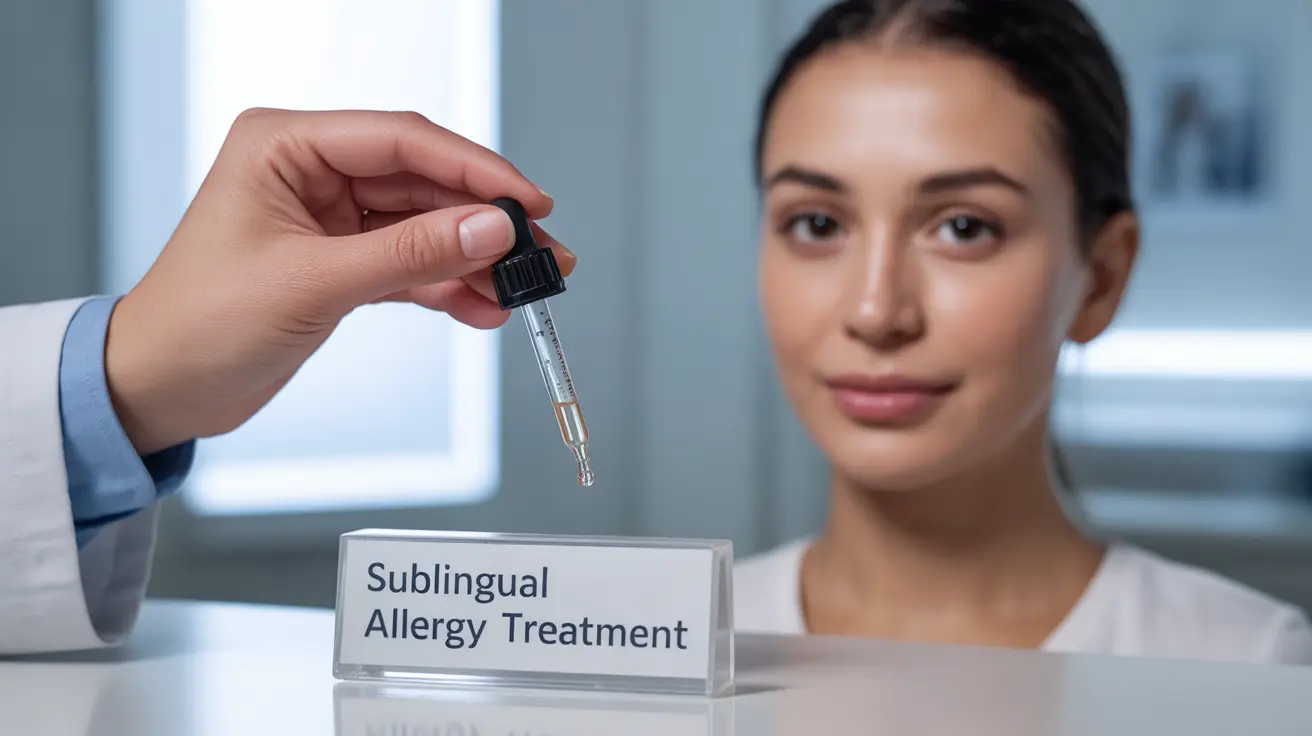For individuals struggling with allergies, sublingual immunotherapy - commonly known as allergy drops under the tongue - offers a convenient and effective treatment option. This innovative approach helps build immunity to specific allergens through regular exposure to small doses of allergenic substances placed under the tongue.
If you're considering alternatives to traditional allergy shots or looking for a long-term solution to manage your allergies, understanding how allergy drops work and their benefits can help you make an informed decision about your treatment options.
How Allergy Drops Under the Tongue Work
Allergy drops work by gradually exposing your immune system to small amounts of specific allergens, helping your body build natural tolerance over time. When placed under the tongue, these drops are absorbed through the sublingual tissue, allowing the allergens to interact with specialized cells that help modify your immune response.
The treatment involves taking daily doses of custom-formulated drops containing purified allergen extracts specific to your allergic triggers. This consistent exposure helps your immune system learn to react less severely to these substances over time.
Benefits of Sublingual Immunotherapy
Choosing allergy drops under the tongue for treatment offers several advantages:
- Convenience of at-home administration
- No needles required
- Lower risk of severe reactions compared to shots
- Suitable for both children and adults
- Flexibility in dosing schedule
- Potential for long-lasting relief
Common Allergens Treated with Sublingual Drops
Allergy drops can effectively address various environmental and seasonal allergies, including:
- Grass and tree pollen
- Dust mites
- Pet dander
- Mold spores
- Ragweed
- Some food allergies
Treatment Process and Timeline
The typical treatment protocol involves three phases:
Initial Phase
During the first few days or weeks, you'll start with a very diluted solution to ensure safety and allow your body to adjust gradually to the allergen exposure.
Build-up Phase
The concentration of allergens in your drops will slowly increase as your tolerance improves, typically over several months.
Maintenance Phase
Once you reach the optimal dose, you'll continue with this concentration for 3-5 years to achieve lasting benefits.
Safety and Side Effects
Allergy drops under the tongue are generally considered safe, with a lower risk of severe reactions compared to allergy shots. However, some patients may experience mild side effects, including:
- Itching or tingling under the tongue
- Mild throat irritation
- Minor swelling in the mouth
- Temporary stomach upset
Frequently Asked Questions
What are allergy drops under the tongue and how do they work to treat allergies? Allergy drops are a form of immunotherapy that delivers small doses of allergens under the tongue. They work by gradually training your immune system to become less reactive to specific allergens, ultimately reducing allergy symptoms over time.
How do allergy drops compare to allergy shots in terms of effectiveness and convenience? Allergy drops are generally as effective as shots for many patients while offering greater convenience through at-home administration. They eliminate the need for frequent office visits and avoid needle use, though they may take longer to show results compared to shots.
What allergens can be treated with sublingual allergy drops? Sublingual drops can treat various allergens including pollen from trees and grasses, dust mites, pet dander, mold spores, and certain food allergies. The specific formulation depends on individual allergy testing results.
Are allergy drops safe and what common side effects should I expect? Allergy drops are considered very safe, with most side effects being mild and localized to the mouth area. Common side effects include temporary itching or tingling under the tongue, mild throat irritation, and occasional mild swelling.
How long does allergy drop treatment usually take and what is the daily dosing process? The complete treatment typically spans 3-5 years for optimal results. Daily dosing involves placing drops under your tongue and holding them there briefly before swallowing, usually once per day. The exact protocol will be determined by your healthcare provider based on your specific allergies and sensitivity levels.




